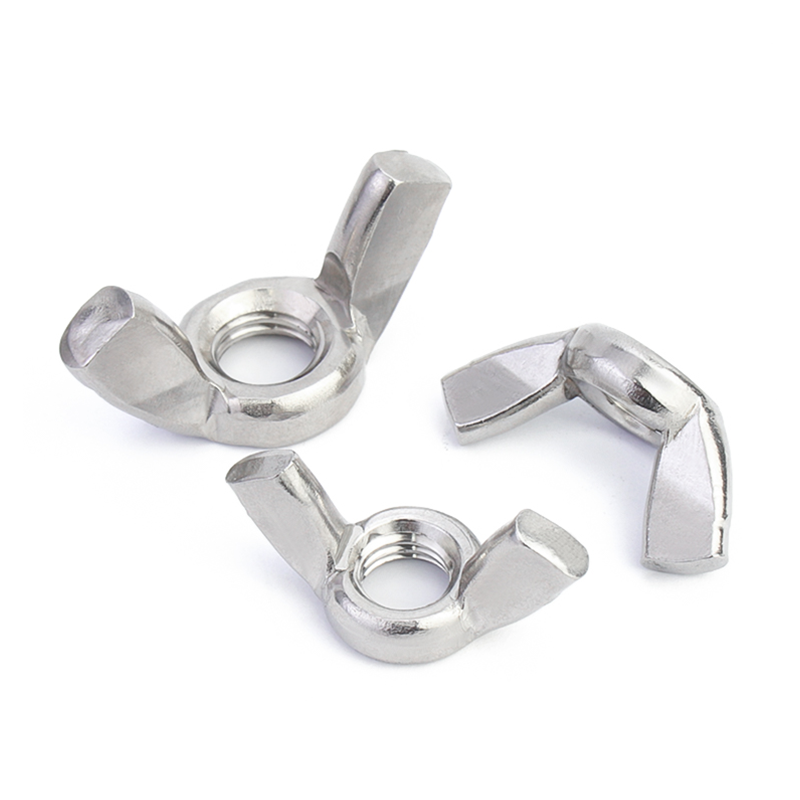

spring washer stainless steel
Dec . 03, 2024 14:32 Back to list
spring washer stainless steel
The Importance of Stainless Steel Spring Washers
Spring washers are essential components used in various mechanical assemblies, providing a reliable solution for applications where fastening stability is crucial. Among the various types of washers available, stainless steel spring washers have gained significant popularity due to their durability, corrosion resistance, and excellent mechanical properties. This article will delve into the significance, applications, and benefits of using stainless steel spring washers, highlighting why they are a preferred choice in today's industrial landscape.
What are Spring Washers?
Spring washers are designed to exert a load or compressive force when installed between two surfaces. Their main purpose is to maintain tension and prevent mechanical loosening due to vibration or thermal expansion. These washers come in various forms, including flat spring washers, wave washers, and belleville washers, each designed to serve specific applications. The spring effect of these washers helps absorb shock, dampen vibrations, and compensate for any wear in the assembly over time.
Why Stainless Steel?
Stainless steel is an alloy that primarily consists of iron, chromium, and varying amounts of nickel and other elements. The addition of chromium creates a passive layer of chromium oxide on the surface of the steel, which prevents corrosion and rusting. This makes stainless steel an ideal material for spring washers that are intended for use in harsh environments.
1. Corrosion Resistance Due to their resistance to rust and corrosion, stainless steel spring washers are perfect for applications in marine environments, chemical processing industries, and other settings where exposure to moisture or corrosive substances is common.
2. Mechanical Strength Stainless steel offers excellent mechanical strength, enabling spring washers to withstand high loads without deforming. This capability is essential in applications requiring strong and stable fastening solutions.
3. Longevity The durability of stainless steel spring washers contributes to their extended lifespan, reducing the need for frequent replacements and maintenance. This longevity not only leads to cost savings but also enhances the reliability of mechanical assemblies.
spring washer stainless steel

Applications of Stainless Steel Spring Washers
Stainless steel spring washers are widely used across various industries due to their robustness and reliability. Here are some key applications
- Automotive Industry In automotive manufacturing, stainless steel spring washers are used to secure components in engines, transmissions, and suspension systems. Their ability to handle vibrations and thermal expansion makes them critical for maintaining the integrity of complex assemblies.
- Construction In the construction industry, stainless steel spring washers provide essential support in structural applications. They are used in bolted connections to ensure proper tension and prevent joint loosening due to environmental factors.
- Electronics The electronics industry utilizes stainless steel spring washers to secure circuit boards and components, ensuring stable connections while minimizing the risk of damage from shock or vibration.
- Marine Applications In boat and ship construction, these washers are invaluable as they resist saltwater corrosion, maintaining the integrity of fastened connections while exposed to the challenging marine environment.
Conclusion
Stainless steel spring washers play a crucial role in ensuring stability and longevity in various mechanical assemblies. Their superior corrosion resistance, mechanical strength, and longevity make them a go-to choice for applications across numerous industries, from automotive to construction and electronics. As technology and engineering requirements evolve, the importance of high-quality components like stainless steel spring washers will continue to grow, solidifying their place in the toolkit of engineers and manufacturers worldwide. Investing in quality spring washers can lead to enhanced performance, reduced maintenance costs, and greater overall reliability in any assembly.
Latest news
-
High-Strength Hot-Dip Galvanized Bolts-Hebei Longze|Corrosion Resistance&High Strength
NewsJul.30,2025
-
Hot Dip Galvanized Bolts-Hebei Longze|Corrosion Resistance&High Strength
NewsJul.30,2025
-
Hot Dip Galvanized Bolts - Hebei Longze | Corrosion Resistance, High Strength
NewsJul.30,2025
-
High-Strength Hot Dip Galvanized Bolts-Hebei Longze|Corrosion Resistance, Grade 8.8
NewsJul.30,2025
-
Hot Dip Galvanized Bolts-Hebei Longze|Corrosion Resistance,High Strength
NewsJul.29,2025
-
High-Strength Hot Dip Galvanized Bolts - Hebei Longze Metal Products Manufacturing Co., Ltd.|corrosion resistance&high strength
NewsJul.29,2025

